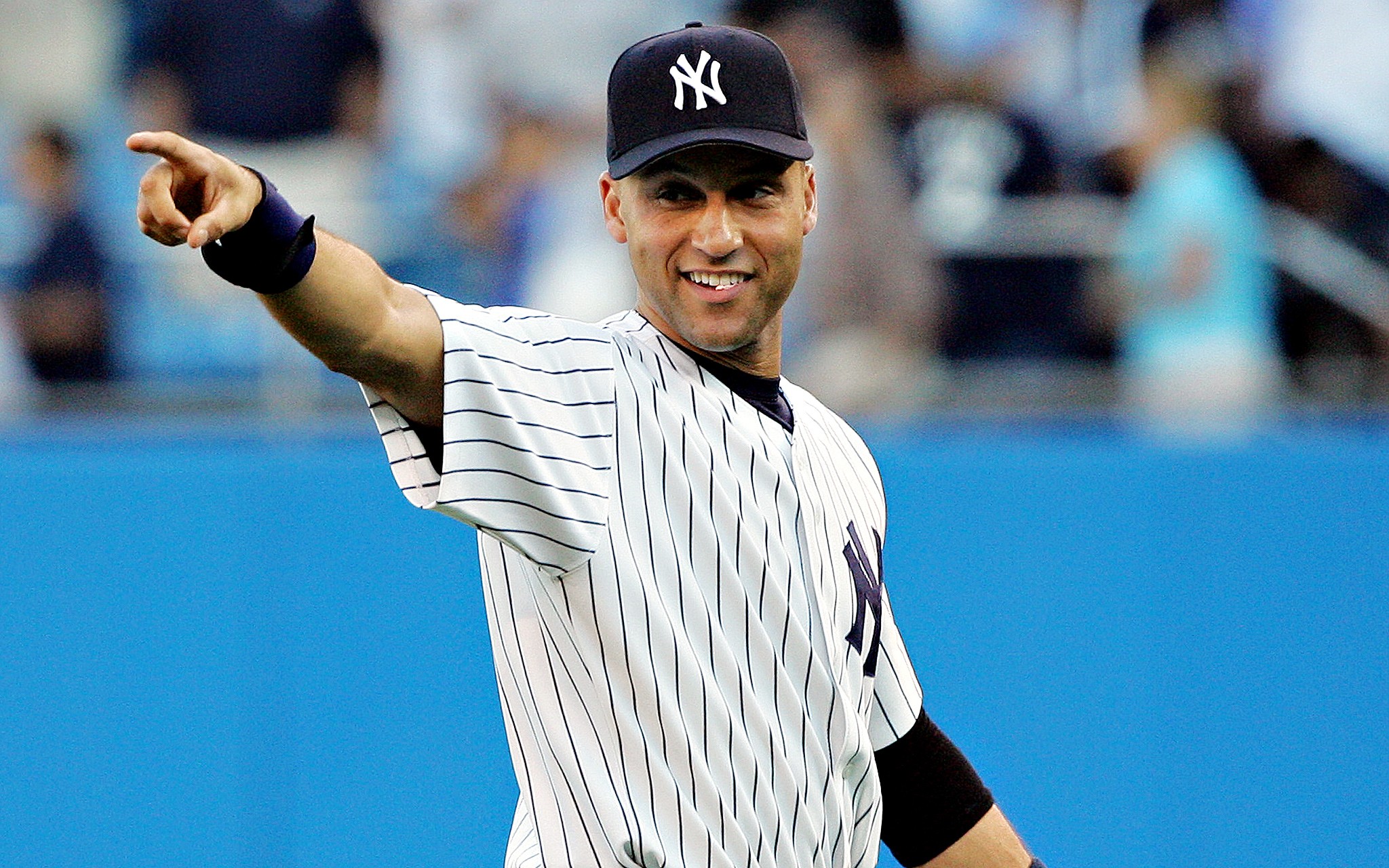
The best perk of a Major League Baseball press credential is access to the field for batting practice. It’s the closest view we commoners can get to athletes performing the hardest act in all of sports. It’s not the sight of Albert Pujols crushing a baseball that tells you he’s doing something beyond the ability of most mortals. It’s the sound from 10 feet away.
I had the chance to roam around the cage before the 2009 All-Star Game at Busch Stadium in St. Louis. Pujols was the headliner (along with Stan Musial and President Obama). There were two-dozen photographers huddled around Ichiro Suzuki while the Mariner outfielder stretched, for crying out loud. But me, I couldn’t take my eyes off Derek Jeter as he took turns with his American League teammates in the batting cage. It’s among the few times in my life I’ve had that thought we get when star-struck: There he is.
Baseball will miss Derek Jeter when the New York Yankees’ captain hangs up his spikes at the end of this season. I’m not sure if those closest to the game realize just how much Jeter will be missed.
Albert Belle led the major leagues with 50 home runs in the strike-shortened 1995 season, the year Jeter made his debut in the Bronx. A year later, Mark McGwire hit 52 for the Oakland A’s, while Jeter earned Rookie of the Year honors in helping the Yankees win their first World Series in 18 years. Just as the “Steroid Era” took off, so did Derek Sanderson Jeter and the latest Yankee dynasty. One of these phenomena will be remembered with distinct appreciation, not so much for greatness — measured by one game or season, was Derek Jeter ever truly a great player? — but for consistent excellence, and perennial championship contention.
The quick-and-easy summary of Jeter’s career (and you’ll read this a lot) will say he’s played playoff baseball in 16 of his 18 full seasons to date. But this actually devalues Jeter’s impact for the most hallowed franchise in American sports. Jeter’s career began the same year baseball expanded the playoff field from two to four teams in each league, so the postseason appearances on their own are mere introduction to Jeter’s legacy. No, it’s what his Yankees did once October arrived that places Jeter in the company of Ruth, DiMaggio, and Mantle: seven American League pennants and five World Series championships. Jeter’s career batting average over those 16 postseasons: .308. And in the seven World Series Jeter played, he was even better: .321.
Jeter will enter the Hall of Fame in 2020, his first year of eligibility. But we don’t have to wait six years to debate whether Jeter is the greatest player in baseball history not to win a Most Valuable Player award. Beyond the five championships, Jeter has started eight All-Star Games, won five Gold Gloves, five Silver Sluggers, the 1996 AL Rookie of the Year, and currently ranks ninth on the all-time hits list with more than 3,350. Among first-ballot Hall of Fame inductees, there are eight who were never named MVP: Lou Brock, Eddie Murray, Dave Winfield, Paul Molitor, Ozzie Smith, Wade Boggs, Tony Gwynn, and Kirby Puckett. None of those great players won as many as three World Series titles. Decades from now, baseball historians will look at Derek Jeter’s career and wonder what the hell MVP voters were drinking.
Having played more than 2,600 games in a Yankee uniform, Jeter will play just his fifth, sixth, and seventh games at Busch Stadium this week (counting that All-Star Game five years ago). He’ll surely receive a sentimental parting gift from the Cardinals and, perhaps more meaningful to a retiring player, standing ovations when he steps to the plate in an opponent’s ballpark. The tribute will be fitting. In an ironic twist baseball and its fans desperately needed and deserved, the face of an era clouded by steroids turns out to be a shortstop who averaged all of 16 home runs a season. Love the Yankees or hate ’em, we all need to cherish the years we’ve had with Derek Jeter.